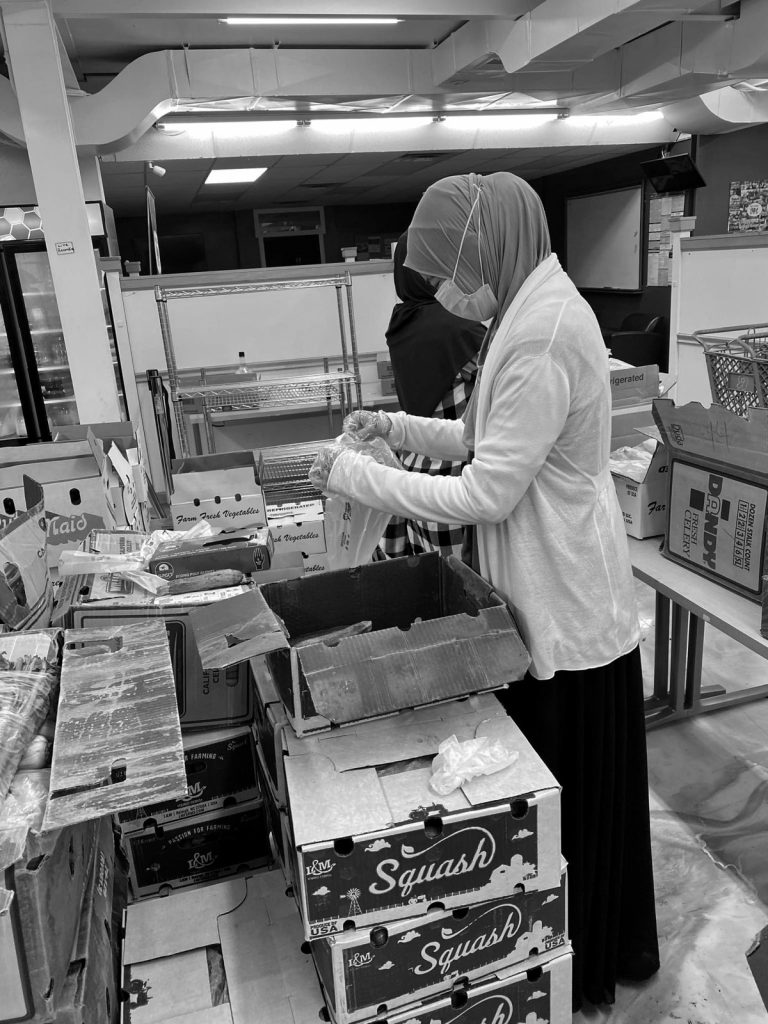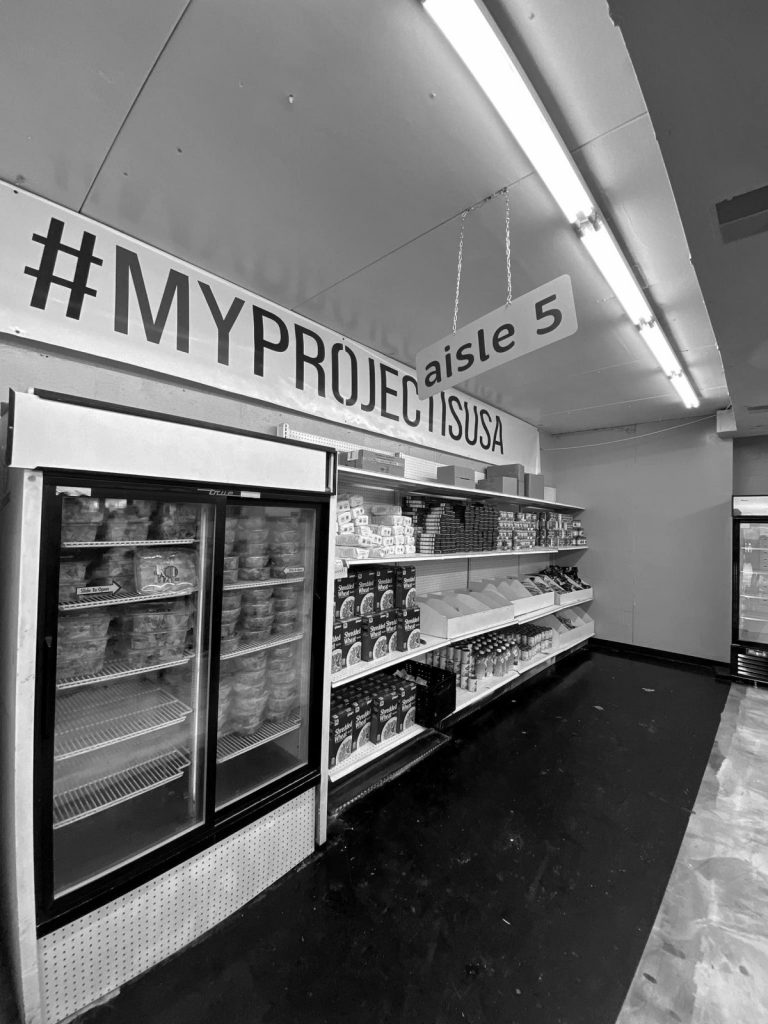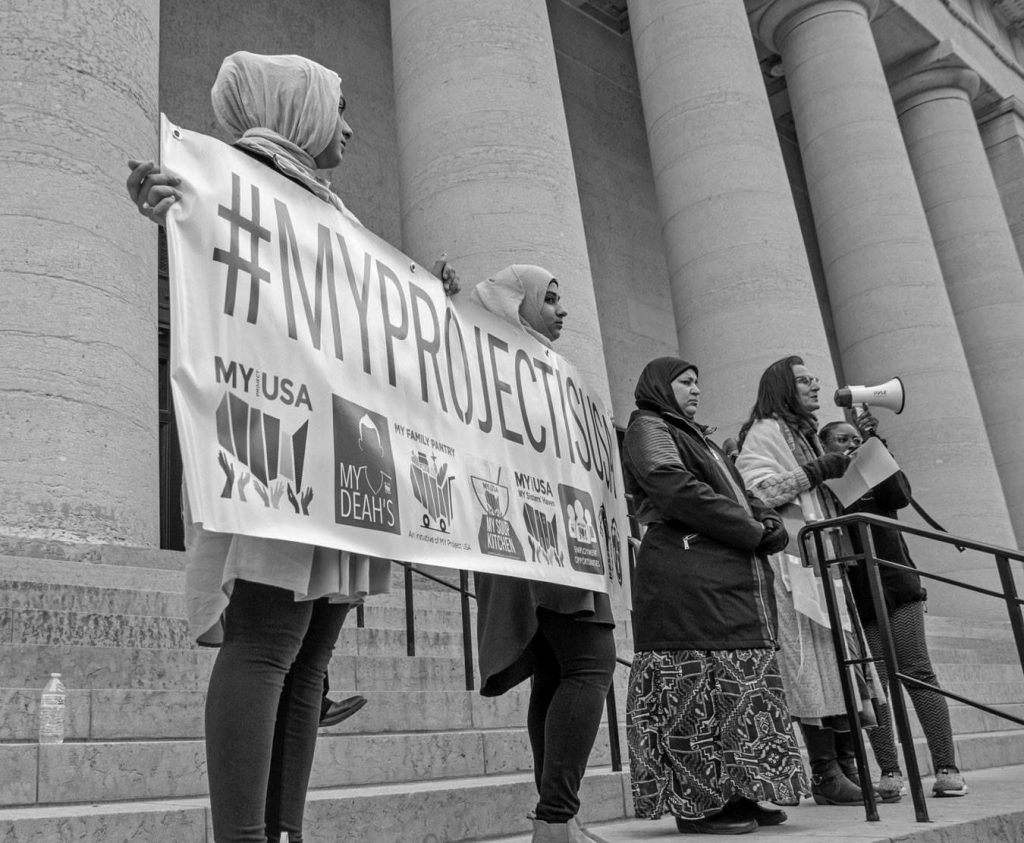Mona started off as a translator for the 2016 Democratic campaign, going door-to-door and assisting people with arranging transportation to their voting booths. Then one day, as she explains, “the lady driving the car gave me a card for the food pantry she was running as part of a food access campaign.”
This is how Mona started volunteering once a week to tackle lack of food access in the Hilltop neighbourhood of Columbus, Ohio. “Most people seeking food were from an immigrant background,” she added. “They were also non-English speakers. Our clients were Hispanic, Cambodian or Laotian. There were also Somalis. Most of these immigrants were extremely poor and lived in the poorest neighbourhood in Columbus, there was a pattern of new arrivals, elderly people and new parents”.
Mona herself did not grow up in Hilltop, and she was quite open about growing up in a modest house, insulated from some of the privations she went on to see. She hadn’t come across ‘food deserts’ until she applied to do some community service for her college applications. Food deserts are areas where a third of the population has no access to food establishments or supermarkets. In the case of Ohio, this is because supermarkets situate themselves on huge plots of land with capacious car parks, outside of the motorways and away from residential areas. As a result, smaller communities are left with no nearby supermarket and must rely on small and expensive delis at the end of the block.
American infrastructure design can be tolerable to a household with a car, since travel time to the supermarket need only be about 20 to 30 minutes. But for impoverished families who cannot afford a car, this simple task becomes an arduous journey. As Mona put it: “I lived in the suburbs, until recently, where there is almost no public transport. What services that do exist are extremely unreliable: a 15-minute commute by car could take 2 hours by bus.”
The dilapidated state of public transport in America makes it far more difficult to plan for regular shopping trips, and to carry quantities of groceries via long-distance public transport. There’s even an additional vexation that frozen products, which tend to be frugal for working-class families to purchase, are practically impossible to transport home in time, without a personal car.
The Ohio government webpage features many articles bemoaning the food deserts of Cleveland and Dayton. At the same time, no clear plan to eradicate them is ever elucidated. According to US Census data, only 5% of the population of Ohio regularly uses public transportation; it’s a hugely car-dependent state. The working people who built America’s infrastructure are now burdened by its inherent oversights and failings.
Mona went on to expand the Hilltop foodbank in Columbus, Ohio. The neighbourhood has a high concentration of destitute people with no access to public transport; they are reliant on carpooling to get to work. The area has high rates of gang violence and is situated in a food desert.
The foodbank first started with a single pantry. News spread like wildfire in a community hitherto accustomed to food insecurity, quickly making the pantry a lifeline. When people would visit, the second time around they would bring a neighbour, a friend, or a family member. It appeared the foodbank users always knew another struggling individual needing aid as much as they did. The problem was revealed to be much more endemic than first anticipated.


Eventually, the project grew and became embedded in all things helping the communities. “Plus now, we have a program helping individuals get citizenship,” she continued in a more hopeful tone, “we help them integrate in the community and give them career guidance and advice.
Mona and her colleagues soon moved from only supplying food, to providing diapers, sanitary products and household cleaning products. Sometimes, they were lucky to get toys and books donations which they would then give to parents when they came for food collection.“Ohio has a harsh winter,” continued Mona, “we now run a sister store in tandem, we aim to donate winter clothing and utensils”.
These would be coats and shoes for parents who could not afford to procure those for their children.
Mona elaborated that many of the young people living in Hilltop are very bright, but: “have no access to food programs, and this affects them severely. They can never excel at school.” They also needed assistance in building their résumés to get a job or a place in college. The Hilltop program now helps the local youth find work and recreation, keeping them off the streets and away from gangs: “The idea here is to create an outlet for young people, give them extracurriculars which would be too costly for their parents to pay for and work skills. We also created a work program called Hilltop Tiger Soccer Club to deter the youth from crime”.
When I asked how the initiative was funded, Mona explained that most of the program is ran by the good will of people. They fundraise and have managed to secure some support from the local government, but the bulk of the human labour and coordination is entirely done by people in the community, volunteering their time to uplift and look after each other.
Many of the volunteers from the food pantry project are now looking to open a domestic violence shelter for women. Mona observed that once one project is in motion more people tend to join and keep the existing project running. This frees up some time for the original organisers, who habitually either increase their workload or go on to tackle other community issues.
The programs aforementioned are mostly ran by women, who utilised the communal principles and routines within immigrant communities in Ohio to create a net-positive grassroot project and look after one another. Being forgotten by the state and left to rot in a food desert did not demoralise them. Hilltop now stands as an example of how regular people in working-class communities can tackle the monstrous problems of American capitalism.
The pantry is currently looking to expand its services as a foodbank, alongside its efforts to offer education and employment opportunities for young people in the area. With time, organisers are hoping to develop a communal network of support; stepping in where the capitalist state has failed. Initiatives like these may not directly challenge the economic system, but they are the natural response from ordinary people to build some collective dignity in their community.
Sumaya Hassan, is a member of the YCL’s London branch



